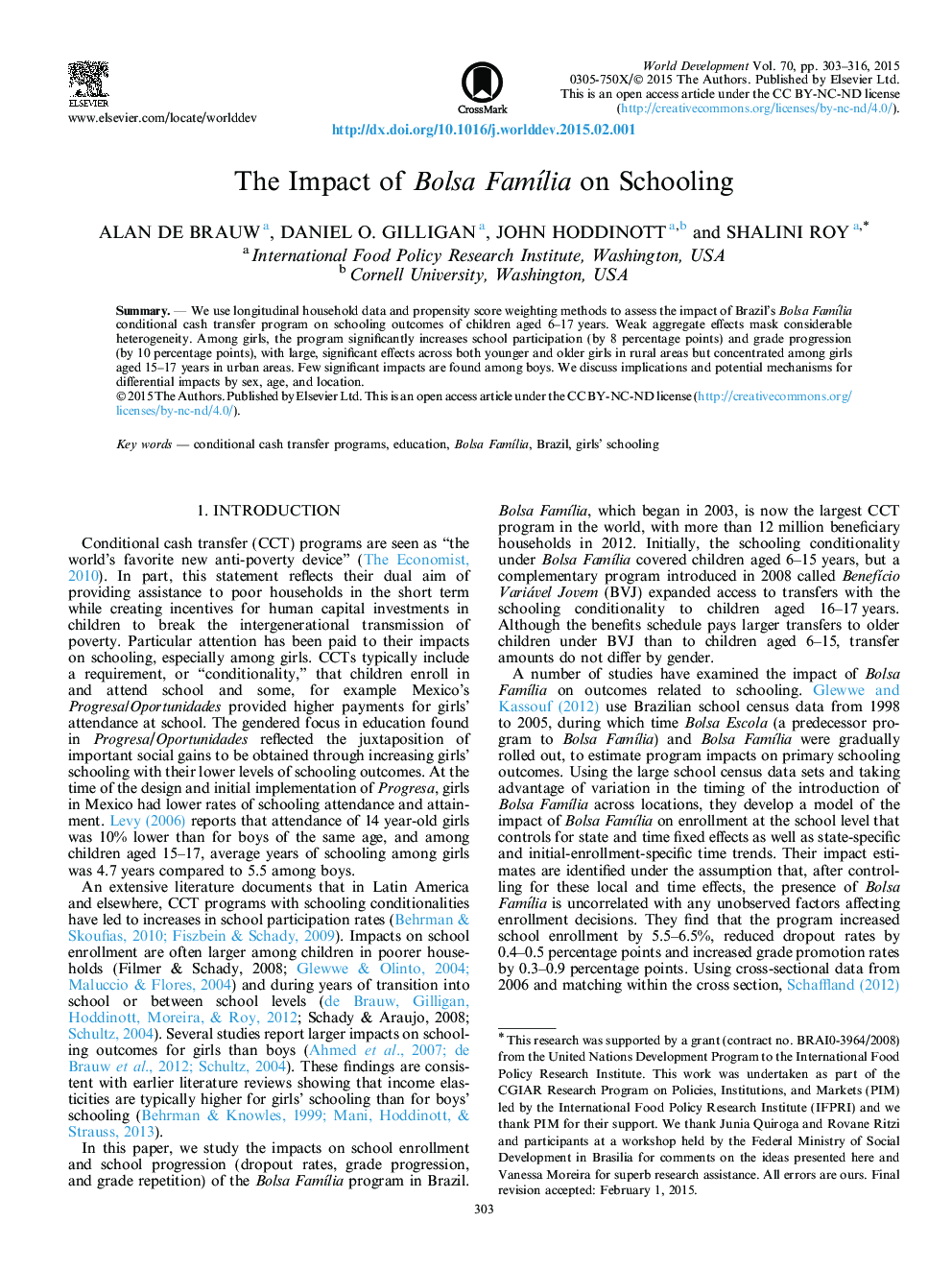| Article ID | Journal | Published Year | Pages | File Type |
|---|---|---|---|---|
| 7393936 | World Development | 2015 | 14 Pages |
Abstract
We use longitudinal household data and propensity score weighting methods to assess the impact of Brazil's Bolsa FamÃlia conditional cash transfer program on schooling outcomes of children aged 6-17Â years. Weak aggregate effects mask considerable heterogeneity. Among girls, the program significantly increases school participation (by 8 percentage points) and grade progression (by 10 percentage points), with large, significant effects across both younger and older girls in rural areas but concentrated among girls aged 15-17Â years in urban areas. Few significant impacts are found among boys. We discuss implications and potential mechanisms for differential impacts by sex, age, and location.
Keywords
Related Topics
Social Sciences and Humanities
Economics, Econometrics and Finance
Economics and Econometrics
Authors
Alan de Brauw, Daniel O. Gilligan, John Hoddinott, Shalini Roy,
